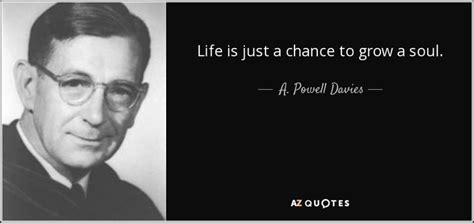A Quote by Frank Herbert
The person who experiences greatness must have a feeling for the myth he is in.
Related Quotes
The person who experiences greatness must have a feeling for the myth he is in. He must reflect what is projected upon him. And he must have a strong sense of the sardonic. This is what uncouples him from belief in his own pretensions. The sardonic is all that permits him to move within himself. Without this quality, even occasional greatness will destroy a man.
When you're feeling joyful, you are giving joy, and you'll receive back joyful experiences, joyful situations, and joyful people, wherever you go. From the smallest experience of your favorite song playing on the radio to bigger experiences of receiving a pay raise -- all of the circumstances you experiences are the law of attraction responding to your feeling of joy.
The heart of Christianity is a myth which is also a fact. The old myth of the Dying God, without ceasing to be myth, comes down from the heaven of legend and imagination to the earth of history. It happens - at a particular date, in a particular place, followed by definable historical consequences. We pass from a Balder or an Osiris, dying nobody knows when or where, to a historical Person crucified (it is all in order) under Pontius Pilate. By becoming fact it does not cease to be myth: that is the miracle.
To do this, you can bring in nothing from the past. So the more psychology you've studied, the harder it will be to empathize. The more you know the person, the harder it will be to empathize. Diagnoses and past experiences can instantly knock you off the board. This doesn't mean denying the past. Past experiences can stimulate what's alive in this moment. But are you present to what was alive then or what the person is feeling and needing in this moment?
We are accustomed to the artist scoundrel or specialist in vice, and unaccustomed to the creator in whom passion and reason and moral integrity hold in balance. But greatness of intellect and feeling, or soul and conduct - magnanimity, in short - does occur; it is not a myth for boy scouts, and its reality is important, if only to give us the true range of the term "human," which we so regularly define by its lower reaches.
There was an enjoyment to being alive, he felt, that because of an underlying meaninglessness–like how a person alone for too long cannot feel comfortable when with others; cannot neglect that underlying the feeling of belongingness is the certainty, really, of loneliness, and nothingness, and so experiences life in that hurried, worthless way one experiences a mistake–he could no longer get at.



































